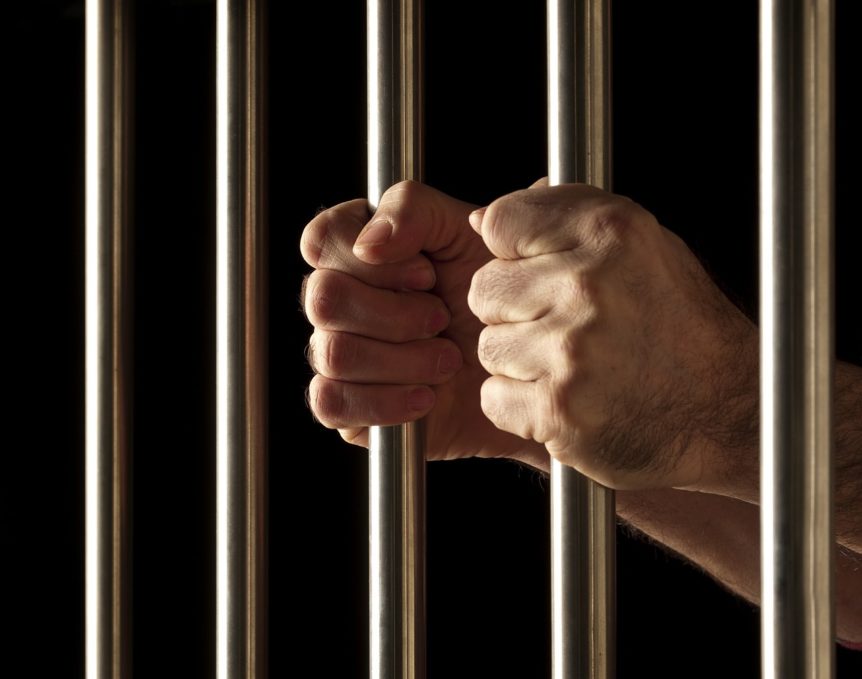If you find yourself facing criminal charges, the whole experience can be quite distressing. It doesn’t matter that you are innocent or at fault. The fact is, it’s a nightmare anyway you look at it.
Defending yourself is a basic right that everyone is entitled to. Attempting to do it on your own may seem like a great idea at first. However, given the intricacies and complexities of the American judicial system, you might just end up digging yourself into an even deeper pit of trouble.
Unless you have a solid legal background that enables you to navigate your way around the system, there isn’t any reason why you should go through the process alone. All the paperwork, the pleadings, the trial and the legal procedures involved are bound to pile on the pressure and send your anxiety skyrocketing.
That’s where a good criminal defense attorney comes in to take a load off. This begs the question: What does a criminal defense lawyer do anyway? If you’re not sure if you need one, here’s what criminal defense attorneys do to defend you.
What Is a Criminal Charge
In the course of your online excursions, you’ll likely come across numerous criminal charges definitions. However, it generally refers to an accusation of a crime that takes the form of a written complaint or indictment against another party.
This then morphs to form a prosecution. If you’re wondering how to file criminal charges against someone, the process follows these straightforward steps:
1. Arrest
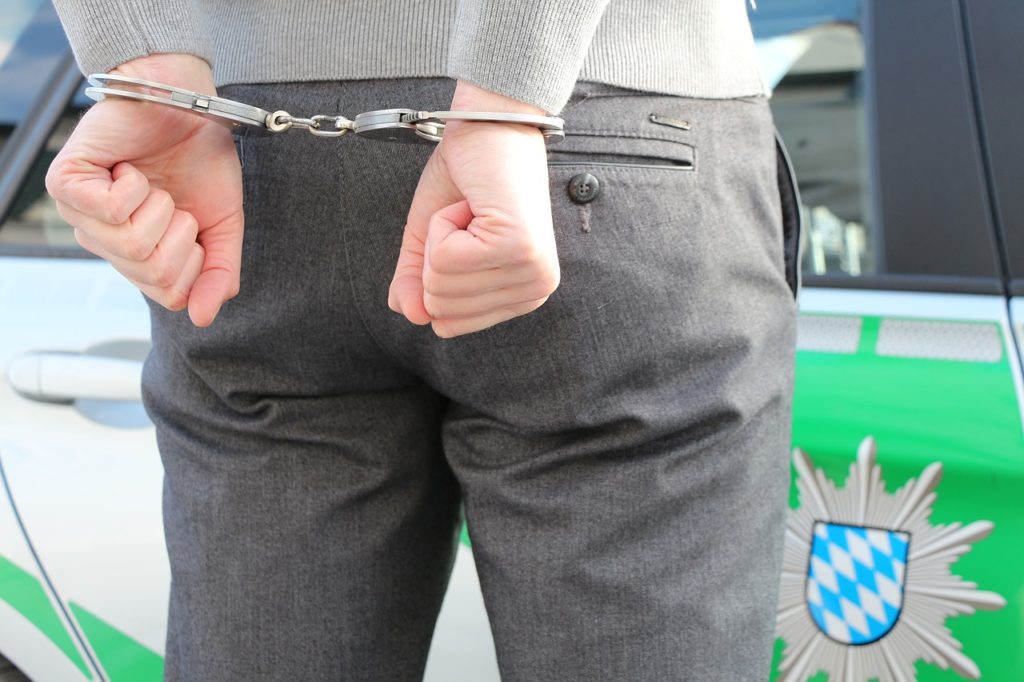
The first step in the prosecutorial process which involves the physical detention of an accused individual is known as an arrest. If the accused is an organization, the arrest occurs through an injunction to prevent the normal day-to-day business operations. Before an arrest can take place some form of legal authority like an arrest warrant has to be sought.
2. Initial Appearance
Once an individual is in custody they have the right to know what charges have been leveled against them and by whom. For this to happen they have to appear before an officer of the court system within the statutory 72-hour period. That’s when they receive formal notice of the charges they’re facing.
3. Bringing Formal Charges Against the Defendant
The case is then handed over to the prosecuting officer of the court to bring formal charges against the accused. This prosecuting officer may have numerous titles that all refer to the same person. For instance, they are referred to as the district attorney or solicitor in some states.
The prosecuting officer is charged with orchestrating the process of leveling charges against the accused individual on behalf of the people of that particular jurisdiction. For instance, the charges might read, “The State of Virginia v. Henry McCaliver”.
The classification of the alleged criminal misconduct determines who the decision-making authority will be in bringing charges against the accused. To begin prosecuting a misdemeanor case, for instance, the prosecuting officer must first file “information” with the court.
They’ll then forward the case to the grand jury to bring felony charges against the defendant. If the grand jury obliges, then the process is referred to as handing down an “indictment”.
4. The Arraignment
An arraignment refers to a defendant’s first court appearance to answer to the criminal charges brought against them. At an arraignment hearing, the court reviews the defendant’s rights and allows them to enter their plea.
A plea will typically take one of three forms: Guilty, not guilty or nolo contendere which means “no contest”. If the accused pleads not guilty, then the court sets the case for trial. If, on the other hand, the defendant enters a guilty plea, then the court sets a trial date to set the case for sentencing.
5. Burden of Proof
For an accused person to be convicted, the burden of proof or trial burden as it is sometimes called lies with the government. This means that it has to prove beyond a reasonable doubt that the evidence presented in the case is sufficient to demonstrate each element of the charged offense.
Criminal Defense Lawyers: Their Role
From the defendant’s end of things, the presumption of innocence is the cornerstone of the American justice system. It is based on the notion that an accused individual is innocent until the government can prove that they’re not.
The prosecution has to prove beyond any shadow of a doubt that the defendant committed the charges being leveled against them. If they fail to do this, then they must acquit.
Criminal defense attorneys are charged with defending their clients. They speak on their behalf to prove their innocence and safeguard their liberty. Here’s what a criminal defense attorney does.
Case Assignment
A defendant may directly retain the services of a criminal defense lawyer. Alternatively, the federal, state or local courts may assign a public defender to handle the case on behalf of accused individuals.
Public defenders are paid by the Public Defender’s office and tend to have a higher caseload than private attorneys. In certain isolated cases, the court may also appoint a private defense lawyer to handle a specific case. This is all in keeping with the rights of the defendant to have the best legal representation on their side to help them fight the charges brought against them.
Defendant Interview
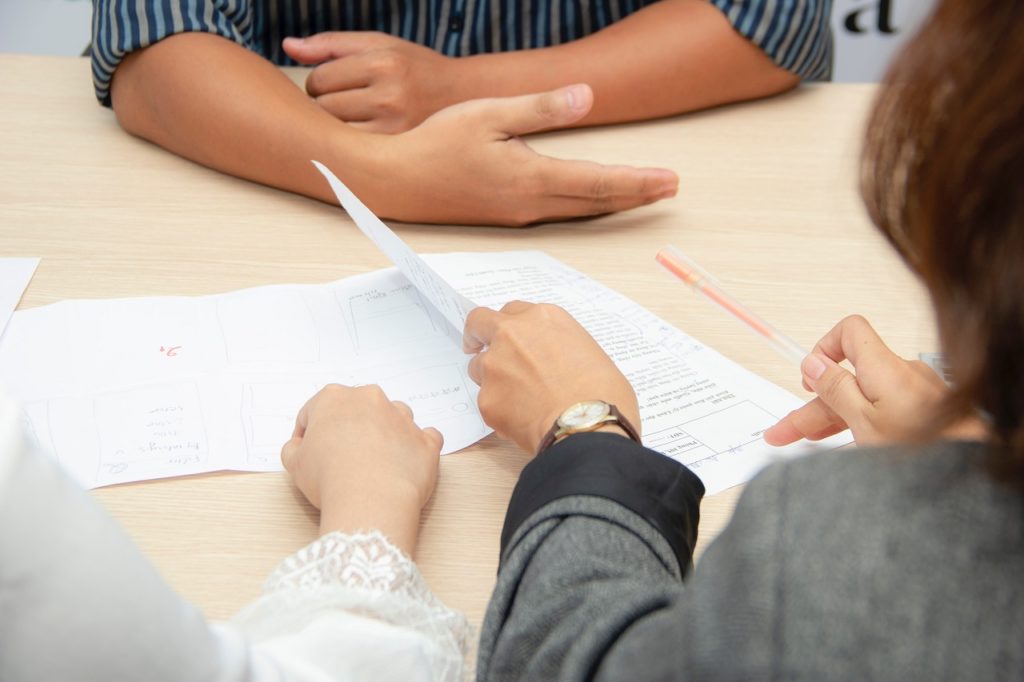
The next step that a criminal defense attorney takes is to meet with their client and get all the information about the case. They interview them by asking numerous specific questions to identify the strengths and weaknesses of the case. The sessions involve rigorous and thorough questioning of the accused person to give the lawyer an overview of the best course of defense to take on the case.
Case Investigation
Once the attorney interviews the defendant they then proceed to carry out their investigations of the case to determine any possible avenues through which their client can get acquitted. The process involves first questioning the law enforcement officers about the methods and procedures they used in the case.
The lawyers also identify and speak with witnesses to get their recollection of events as they occurred. This information goes towards building a solid defense strategy for the accused.
They may also get an expert witness on their team to testify on their client’s behalf. They interview them about the testimony they’ll provide which will then be presented in open court.
Defense lawyers also have the right to review the case built by the prosecution before it is submitted to the jury. It gives them a chance to identify any gaps in the case against their client and look for evidence that can refute the prosecution’s evidence. For instance, they may get an independent expert or lab to test the evidence presented in the case to determine if there evidence tampering or differing conclusions.
Evidence Analysis
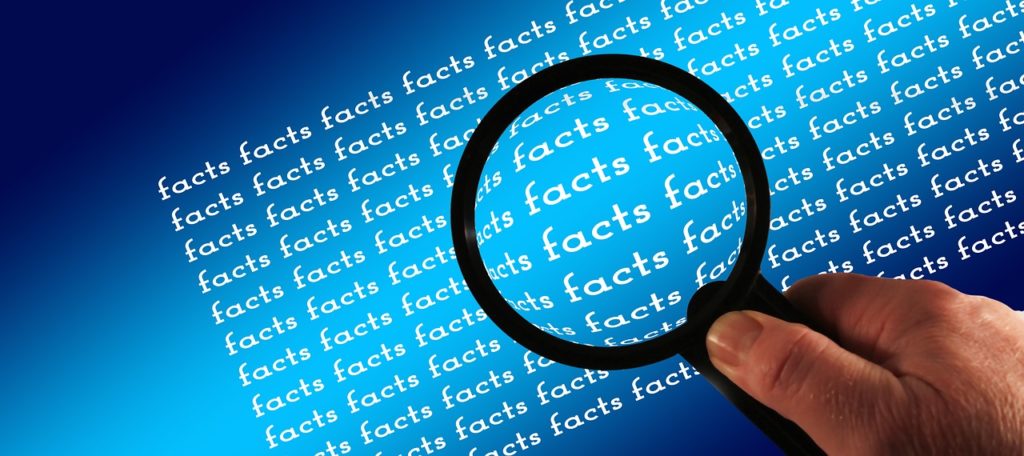
This is a very crucial part of the defense process. The lawyer has to carefully comb through all the facts presented in the case with a fine-tooth comb. They examine all the evidence to come up with legal theories that could get their client acquitted.
Communication with the Defendant
Defense attorneys have to maintain continued contact with their clients. They need to keep them up-to-date with any developments in their case. All conversations between them and the defendant are confidential. They cannot divulge any information about the client and their case to any external parties.
Additionally, the lawyer has to be up-front with their client. They need to ensure that the defendant understands the magnitude of the charges they’re facing and the consequences if they’re convicted.
They have to communicate all the options available to their clients for them to make an informed decision on what to do depending on the evidence (or lack thereof) against them. They have to consult their clients before making any decisions on their behalf that could alter the outcome of their case.
Jury Selection
The jury selection process, also called “voir dire” is perhaps one of the most important tasks a criminal defense attorney has to do as they prepare for trial. It involves identifying which jurors have the potential to help or hurt their case. Letting the prosecution dominate this process could have adverse effects on the outcome of the case since certain jurors could hold a bias towards the accused.
The best criminal defense lawyers look to select jurors that they believe will be sympathetic to the defendant’s plight. Since both the defense and the prosecution are involved in the process, the result will be a fair and impartial jury.
Plea Bargaining
A criminal defense lawyer is also charged with negotiating with the prosecutor on the possibility of a plea bargain. A plea bargain is a resolution between the prosecution and the accused’s defense attorney to settle a criminal case without having to go to trial.
It usually ends with the defendant entering a guilty or no contest plea in exchange for receiving lesser charges or a reduced sentence. The role of a defense lawyer in a plea bargain is to:
- Try and reduce the number of criminal counts in a complaint leveled against their client
- Get felony charges reduced to misdemeanors
- Get misdemeanor charges reduced to infractions
- Have their client enter a plea in return for getting certain charges against them dropped
- Try and get a reduced sentence based on the weakness of the evidence or the defendant’s lack of a prior record
- Get the defendant a deal where they enter a plea to a certain set of charges in exchange for an alternative or reduced sentence for testifying against their co-defendants in the crime
When the defendant is facing a likely conviction that could lead to harsh punishment, a criminal defense attorney explores this option to safeguard their client’s interest.
Participating in the Trial
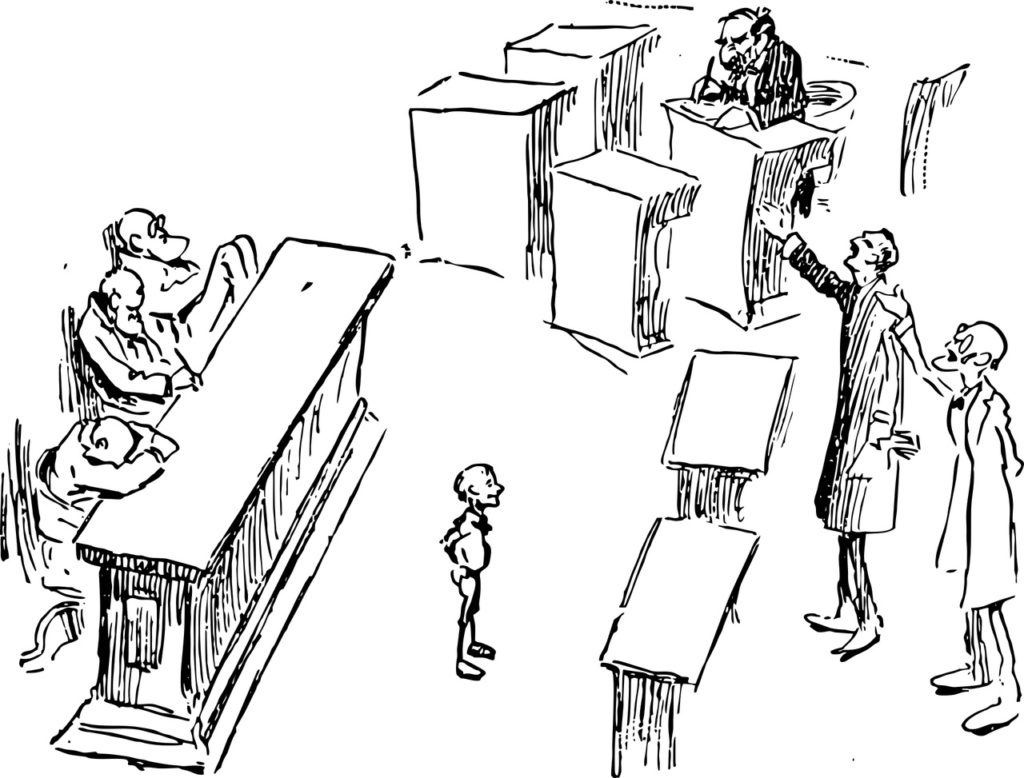
A criminal defense attorney is the voice of the accused individual during the trial process. They fight to safeguard their client’s rights through the whole process should the case go to trial. The complexity of an attorney’s job depends on whether a single judge or a panel of jurors hear the case.
This informs the strategy that they’ll employ. It involves presenting the best possible story to describe the defendant’s current situation. The story could have either or all of the following attributes:
- Basing it on a solid foundation of evidence. For instance, if the defendant’s vehicle was used as the getaway vehicle in the crime, the defense can show that it was stolen from the accused before the crime.
- Formulating it based on its ability to gain sympathy from the jury or the presiding judge. For instance, the defense could show that the accused attempted to withdraw from a crime before it occurred.
- Proving that the defendant’s version of events is a true account of what happened at the time that the crime was committed. For instance, if the defendant asserts that they were not at the crime scene, the lawyer’s story will reveal why they weren’t indeed present.
The best defense attorneys convince the jury that the evidence presented by the prosecution doesn’t meet the required threshold to prove guilt beyond a reasonable doubt.
The Criminal Defense Attorney’s Role in Sentencing
If the accused ends up getting sentenced for the alleged crime either as the result of a plea bargain or through a conviction, their defense attorney has to represent their client during the sentencing phase of the trial. They can put forth reasons to convince the jury or presiding judge to reduce the length of the sentence and give other alternatives to incarceration.
Get the Best Defense for the Best Outcome
Criminal defense attorneys wear different hats in the course of a criminal case. While they aren’t therapists they certain play a critical role in helping accused individuals deal with the flood of ever-changing emotions that accompany the highs and lows of a case.
If you or someone close to you is facing criminal charges and possible jail time, consulting the best criminal defense attorneys is the best option to get you the most favorable outcome for the extraordinary circumstances you’re facing.
If you have more legal questions, you can also chat online with a Laws101.com attorney where you’ll be instantly connected to a lawyer who can give you legal guidance on your specific case or question.
